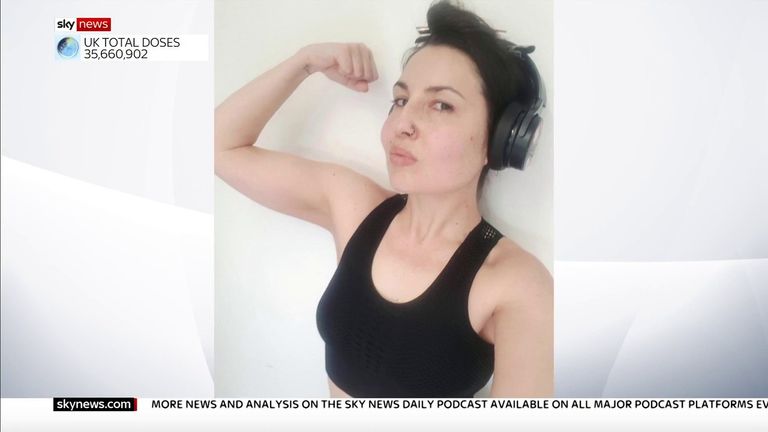Author Michael Rosen has said his long COVID symptoms have included “sandy skin” and sharing his experiences on social media has helped him cope.
The children’s writer, 74, described his illness to Sky News after latest figures showed that 1.1 million people in the UK have reported suffering a range of COVID-19 symptoms for more than four weeks.
According to the Office for National Statistics (ONS), 674,000 people were so ill that their daily lives were affected, and for another 196,000 it limited their ability to carry out everyday tasks.
The figures were reported over a four-week period to 6 March.
Mr Rosen first caught coronavirus this time last year and spent 48 days in intensive care, including 40 in an induced coma.
He told Sky News he has lost most of the sight in his left eye and much of the hearing in his left ear, as well as having numb toes, no longer having the sense in them.
He also lost his big toe nails “rather mysteriously”, adding: “There’s very strange and not so serious symptoms.
“For example, I grow a kind of sand on my skin, and then – if I get a wound of any sort – the skin granulates.
“That means you sort of produce extra skin and so the wound doesn’t heal up.”
Other long-COVID sufferers have told how they have faced difficulty getting diagnosed.
Britain Stelly told Sky News she had been laughed at by doctors when talking about her fight with the condition.
She said she suffers with symptoms like allergic reactions, inflammation, bloating and fatigue.
Ben Humberstone, head of health and life events at the ONS, said: “Two thirds of those with self-reported long COVID told us it’s limiting their day-to-day activities so they’re not able to do the things they would’ve been able to do before.
“And when you think this is most prevalent in people of working ages, that’s going to have a real impact on the world of work, childcare and things day to day we take for granted.”
Mr Rosen added that he is part of a Facebook group where people can share and complain about their long COVID symptoms.
He said that sharing the experience helps humanise what has happened to them.
The author said: “You suddenly think ‘you’re not alone’.
“And the moment you feel not alone – my own feeling always is – is that you rejoin the human race, because there’s a time when you’re sitting there and feeling miserable you somehow feel as if it’s just picked you off, and it’s quite nice to rejoin the human race occasionally.”
While long COVID doesn’t have a concrete definition, it is widely understood to cover a set of symptoms including fatigue, muscle pain and difficulty concentrating.
Earlier, Health Secretary Matt Hancock told Sky News: “It’s one of the many damaging problems of this virus.
“We’re putting more research money into tackling and understanding long COVID because it appears to be several different syndromes.”
In February, he announced an £18.5m funding boost for major studies into the long-term effects of COVID-19.












